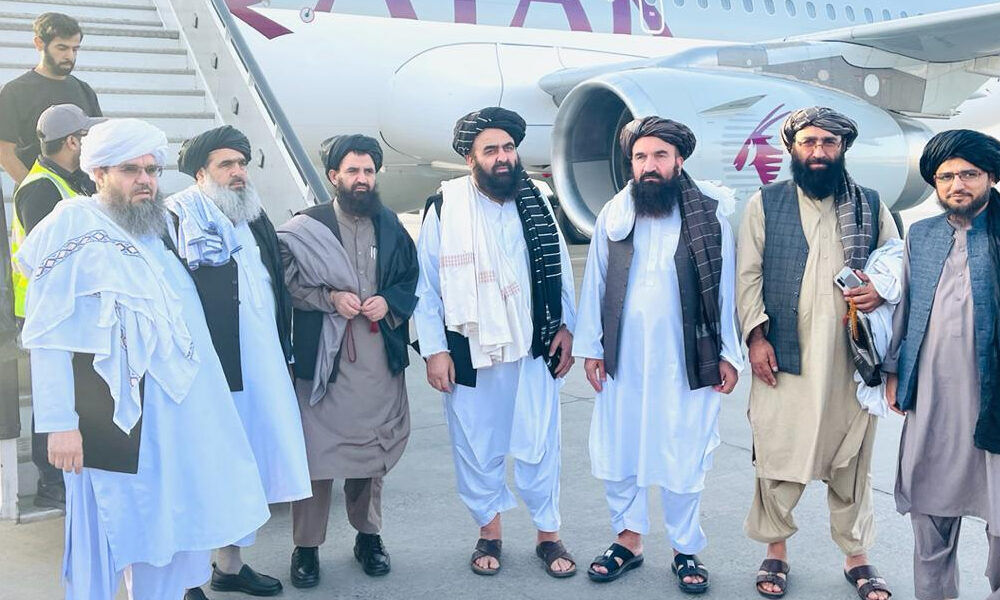Speaking in an interview with the website of the Strategic Council on Foreign Relations, Pir Mohammad Mollazehi, referring to the Taliban delegation’s economic and human rights negotiations with European and American diplomats on January 23, stated: Although the world is still not ready to officially recognize the Taliban, the reality is that all countries interact with them more or less “de facto”.
He pointed to the dire humanitarian situation in Afghanistan, adding: What happened in Oslo, in fact, from the Taliban point of view, meant that, given the invitation they received, some sort of recognition was made and the ground is being prepared for their official recognition. The Taliban’s meeting with the US delegation shows that they, too, are gradually preparing to recognize the Taliban, as they see China and Russia more seriously are considering recognition of the Taliban and their embassies in Kabul have not been closed yet.
Mollazehi, saying that this is likely that some countries in the region, including China and Russia, would advance to recognize the Taliban, referred to the US domestic problems in Afghanistan and strong criticism of the Biden administration over its withdrawal from that country and continued: Preparing public opinion inside the United States to recognize the Taliban is a bit more difficult than in Europe.
Referring to the Taliban delegation’s meeting with Afghan civil society and refugee women in Europe, which was welcomed by all parties, he dealt with some revisions made with regard to women’s rights, including the reopening of girls high schools in some areas and the issuance of a declaration on the right to leave the house without very near relatives up to 72 km in cities from house in the cities, adding: It seems that the Taliban have reduced the restrictions that were previously considered in some cases.
He stressed: There was a possibility that the Taliban would agree to share power with other groups before taking over the military power in Afghanistan and the escape of Ashraf Ghani, with regard to the Doha agreement, but entering Kabul without confrontation and occupying the entire country has given the Taliban that much confidence that they will not compromise with Khalilzad.
According to this expert on subcontinent affairs, it is very unlikely that the Taliban, which is now in power, will fully accept formation of a hybrid government, rotation of power and the elections, unless at a more limited level they enter some people with low risk in the power structure; to the same extent that some Hazara Shiites, Tajiks and Uzbeks, who share the same ideology as the Taliban and have been educated in their schools, are now included in the cabinet.
Mollazehi outlined some of the economic and livelihood needs of the Afghan people and the country’s immediate political challenges, and commented on the Taliban’s approach towards such issues and noted: One of the Taliban leaders had pointed out that they had not promised bread to anyone and “bread” and “sustenance” are in the hand of God. This is the deep belief of the Taliban and should be taken seriously in the analysis. The Taliban hope that the economic pressure on Afghanistan and the anticipated humanitarian catastrophe will put so much pressure on the international community that it will be forced to find a solution.
He added: The United States is now seeking to provide some of Afghanistan’s blocked assets to the United Nations to deliver food and medicine to the people of that country, but the Taliban do not agree with that and insist on seizing those assets.
The analyst of Afghanistan affairs referred to the consultations made on improving people’s livelihood, education, health, human rights and the fight against terrorism in Oslo, saying: What the Taliban described as a “great achievement” and “success” in the Oslo talks is in fact in the political field and the Taliban do not give much priority to economic issues. What matters to them is that the world is gradually accepting the Taliban, which was a great achievement for the Taliban in Oslo. Of course, it seems that the issue does not take too long.
Mollazehi explained: If China and Russia sign a serious agreement with the Taliban on the existing natural and mineral resources in Afghanistan, which is said lithium resources are available in the country, a big step will be taken. Because, this element, with regard to its importance in the field of battery industry and the forecasts for building aircraft powered with solar-battery in the future, is very sensitive for China.
He referred to the China Belt-Road project and the importance of Afghanistan, Iran and Pakistan in the initiative, as well as the strategic position of some Afghan cities for the implementation of China’s economic plans and continued: The Chinese have a very strong incentive to recognize the Taliban.
Regarding the possibility of some internal protests over economic, political and human rights issues, Mollazehi said: The Taliban do not seem to be too worried about those issues. In fact, there are three opposition currents in Afghanistan; the civil resistance of women and others inside is controllable and the Taliban will not back down on those issues. They may compromise in some cases but they will eventually control. The leaders of the Panjshir movement have also left the country and have no hope that the resistance will spread. The Ankara current, as the third current, if they could, they have preserved the power so far, but they know that they have no place in the Afghan society.
He continued: General Dostum and Mohaqiq have practically become burn notice and now a younger generation of leadres of Shiites, Uzbeks and Tajiks have risen and the Taliban do not pay much attention to such critical currents and do not think they have a chance to regain power.










0 Comments